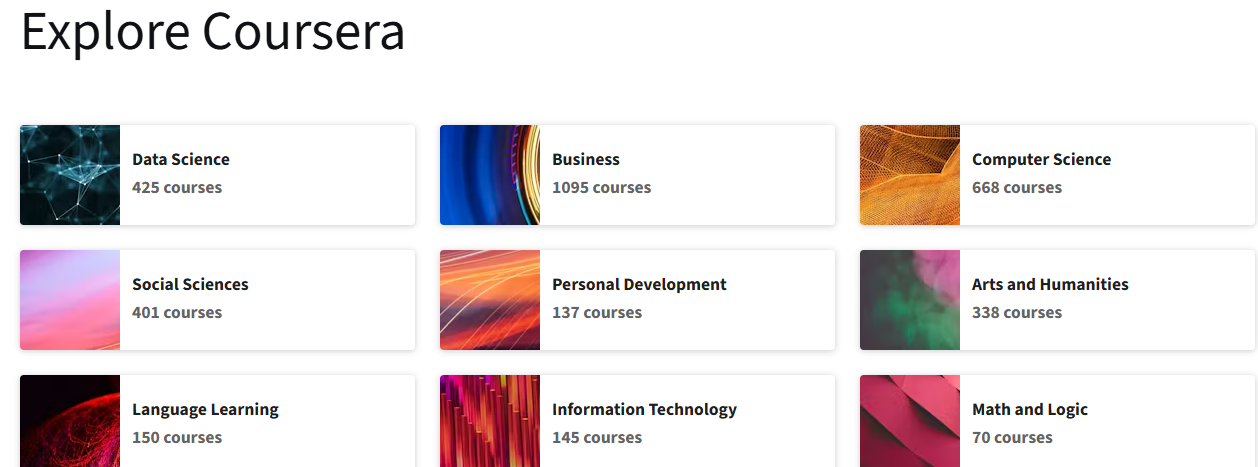Introduction to Online Education
The landscape of education is changing rapidly. Gone are the days when learning was confined to classroom walls and rigid schedules. Today, students can access knowledge from anywhere in the world with just a few clicks. Online education has exploded in popularity, driven by advancements in technology and a growing desire for flexible learning options.
At the forefront of this revolution is Coursera, a platform that has redefined how we think about online courses. With partnerships spanning top universities and organizations globally, it has become synonymous with quality education accessible to all. As more learners turn to digital classrooms, it’s essential to explore what drives this movement forward and where it might lead us next.
Join us as we delve into Coursera’s remarkable journey, uncovering insights into its impact on online education and what challenges lie ahead for platforms like it. We’ll also look at innovative technologies shaping the future of learning and hear inspiring stories from those who have transformed their lives through these opportunities. The future of online education is bright—let’s discover why!
The world of education is evolving, and online learning has become a powerful force in shaping how knowledge is shared and acquired. Gone are the days when students were confined to traditional classrooms with rigid schedules. Today, learners can explore subjects from anywhere at any time, thanks to platforms like Coursera.
Coursera has transformed the way we think about education by partnering with top universities and organizations worldwide. This innovative platform offers a vast array of courses that cater to different interests and career paths. From coding to psychology, there’s something for everyone eager to learn or enhance their skills.
As we dive into Coursera’s success story, it becomes clear that online education isn’t just a passing trend; it’s here to stay. What does this mean for the future? Let’s explore how this shift impacts learners, educators, and industries alike. The journey ahead looks promising as we navigate through new opportunities in learning and personal development.
The Growth of Coursera and Its Impact on the Industry
Coursera has revolutionized the landscape of online education since its inception in 2012. Founded by Stanford professors Andrew Ng and Daphne Koller, it started with a vision to make quality education accessible globally.
Today, Coursera boasts partnerships with top universities and organizations worldwide. This collaboration has allowed millions of learners to access courses from prestigious institutions at a fraction of traditional costs.
The platform’s growth is indicative of a larger trend toward digital learning. As more individuals seek flexible options for skill development, Coursera’s offerings have expanded significantly—from technical skills in data science to soft skills like leadership.
Its impact does not stop at individual learning; it influences educational institutions as well. Universities are rethinking their curricula and adopting hybrid models that blend on-campus experiences with online components, driven largely by platforms like Coursera.

Challenges Faced by Online Learning Platforms
Online learning platforms face a myriad of challenges that can hinder their growth and effectiveness. One significant issue is the varying levels of student engagement. With distractions at home, many learners struggle to stay focused during lessons.
Technical difficulties also pose a major hurdle. From internet connectivity issues to platform glitches, these problems can disrupt the learning experience and lead to frustration for both students and instructors.
Moreover, ensuring content quality remains critical. Not all courses are created equal, which raises concerns about credibility. Institutions must maintain high standards while continuously updating materials.
Personalized learning experiences are often lacking in online platforms. Tailoring coursework to individual needs is essential but can be resource-intensive and complex to implement effectively. Educators must find ways to adapt without sacrificing accessibility or affordability.
Innovations in Online Education: Virtual Reality and Artificial Intelligence
The landscape of online education is rapidly evolving, driven by groundbreaking innovations. Virtual reality (VR) is at the forefront, transforming traditional learning environments into immersive experiences. Imagine stepping into a virtual classroom where you can interact with 3D models or visit historical sites without leaving your home.
Artificial intelligence (AI) complements this transformation by personalizing educational pathways for students. AI-driven platforms analyze learner behavior and preferences to tailor content that maximizes engagement and retention. This adaptive approach ensures that each student receives a unique learning experience based on their needs.
Together, VR and AI create dynamic interactions between learners and instructors. These technologies empower educators to present complex concepts in engaging ways while providing instant feedback to students. The synergy of these advancements promises not only improved accessibility but also an enriched understanding of subjects across diverse disciplines.
Coursera’s Success Stories: Case Studies of Students and Instructors
Coursera has transformed countless lives through its diverse learning opportunities. Take Anna, for example. She transitioned from a stagnant job to a thriving career in data science after completing several specialized courses. Her newfound skills led her to land an impressive role at a tech giant.
Then there’s Mark, an instructor who discovered the platform’s potential for reaching global audiences. He created a course on digital marketing that became wildly popular. His teaching methods resonated with students across continents, earning him accolades and financial freedom.
These stories highlight the tangible impact of online education. They showcase not just personal growth but also professional transformation facilitated by Coursera’s innovative approach to learning. Each success story adds another layer to the rich tapestry of educational evolution we are witnessing today.
The Future of Online Education: Predictions and Possibilities
The landscape of online education is evolving rapidly. Predictions suggest that personalized learning will become the norm. With advancements in technology, courses can adapt to individual learning styles and paces.
We may also see an increase in micro-credentials. These shorter, focused programs allow learners to gain specific skills quickly. Employers are likely to value these credentials more as the job market demands agility and adaptability.
Collaborative tools will continue enhancing student interaction. Virtual classrooms could simulate real-world environments, helping students engage better with their peers and instructors.
Furthermore, the integration of blockchain technology might revolutionize how educational achievements are verified and shared. This could lead to greater transparency in qualifications across borders.
These innovations indicate a future where education is not just accessible but also tailored to meet diverse needs effectively.

Conclusion: Embracing the Evolution of Learning
The landscape of education is shifting dramatically. As we navigate the future, it’s clear that online platforms like Coursera are at the forefront of this transformation. They not only democratize access to knowledge but also redefine what learning looks like in a digital age.
With advancements in technology such as virtual reality and artificial intelligence, the possibilities seem limitless. These innovations promise to enhance engagement and provide personalized learning experiences tailored to each student’s needs.
However, challenges remain. The need for credible assessments and ensuring quality instruction will always be vital components of any successful educational model. Addressing these hurdles will require collaboration between educators, technologists, and policymakers.
Coursera’s success stories highlight the potential impact online education can have on individuals from diverse backgrounds. Students who once felt constrained by geography or finances now find doors opening through accessible courses taught by world-class instructors.
As we move forward, embracing change becomes essential. Education is no longer confined to traditional classrooms; it’s evolving into something more inclusive and versatile. This journey invites all learners—whether they’re seasoned professionals or eager newcomers—to participate actively in shaping their futures through lifelong learning opportunities available at their fingertips.
The evolution of education is just beginning, paving a path filled with exciting prospects for everyone involved in the quest for knowledge.
















